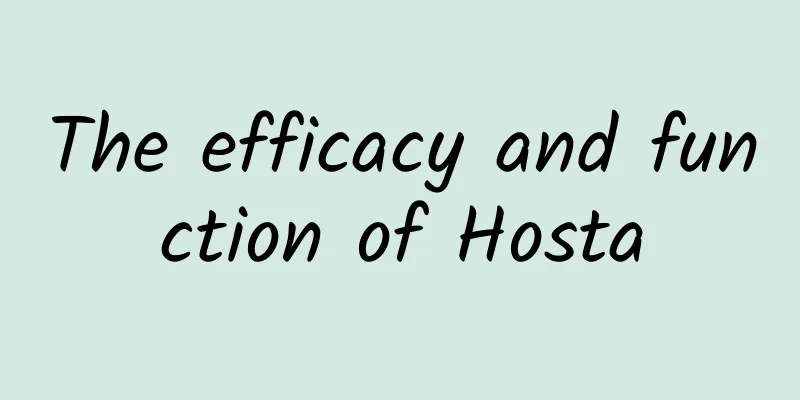How to eat Cordyceps sinensis better

|
I believe everyone must have seen Cordyceps sinensis in many Chinese herbal medicine stores. It is a medicinal herb that looks like small insects. Cordyceps sinensis is a very precious medicinal material and is of great help to the human body. However, most people generally know that Cordyceps sinensis is used as a medicinal material, but they don’t know much about other ways of eating it. So, how to eat Cordyceps sinensis better? In fact, boiling cordyceps in water and drinking it as tea is the best way to nourish the body. Professor Yang said that the nutrient utilization rate of boiled cordyceps in water is much higher. Drinking Cordyceps water is as particular as drinking Gongfu tea. First of all, you need to choose a kettle with transparent glass. Glass will not absorb nutrients and flavors like purple clay, and will not easily produce chemical reactions like other materials. At the same time, you can also observe the changes in the color of the Cordyceps water in the kettle. Put 3 to 6 Cordyceps at a time, depending on your personal preference for concentration and your own financial ability. Usually, Cordyceps needs to be boiled for 6 to 10 minutes at a time. Note that it should be boiled over low heat and for a short boiling time. Drink the water immediately after it boils and add water while drinking. When the Cordyceps water is the darkest in color, it is the most nutritious. Do not waste the water at this time. Usually Cordyceps water goes through a process from light to strong and then back to light again, and the aftertaste is also very long. When the Cordyceps water becomes lighter or even white, do not drink it. You can eat the Cordyceps. A pot of Cordyceps tea can be drunk for at least half an hour, and water should be added 4 to 6 times. From the perspective of absorption, Cordyceps wine is the best, followed by aqueous solution preparations, and finally solid preparations. Cordyceps sinensis is taken as a health-care dosage; the general daily dose of Cordyceps sinensis is 5 grams. If it is for disease treatment or conditioning, the daily dosage of Cordyceps sinensis is generally 10 to 30 grams. (For example, boil it in water for about 30 minutes) According to the principles of traditional Chinese medicine, the best effect is achieved when taking the medicine 30 to 60 minutes before or after meals. It can be stewed with meat products. This is the traditional way of eating Cordyceps. When combined with different types of meat, the effects will be different. For details, please refer to the method of eating Cordyceps. The disadvantage of this method is that it is not suitable for long-term daily consumption. Use a grinder to grind the Cordyceps into powder, put it into a capsule box, carry it with you, and take it regularly every day. This method has potential health risks and is not recommended if it is not taken regularly every day. After reading this content, you may realize that there are many ways to eat Cordyceps sinensis. Just choose the appropriate method according to the effect you want. It can be used not only for soaking wine but also for cooking soup. Taking Cordyceps sinensis can enhance the health of the body on the one hand, and on the other hand it can also greatly enhance the body's immune ability to prevent some diseases that may occur in the body. |
<<: What to do if medicinal materials are moldy?
>>: How to eat artificial Cordyceps sinensis
Recommend
If you often feel "panic", the problem may not only be in your heart! 5 situations to be vigilant
I believe everyone is familiar with "panic&q...
Southerners: Why do we need to scrub our bodies? Northerners: It can remove dead skin cells!
Tell me quietly, are you from the north or the so...
Pueraria root soft capsule
Women often develop certain diseases in their liv...
Xiao Jianzhong Decoction Original Recipe
The book "Classic Prescriptions and Syndrome...
The efficacy and function of garlic stems
Garlic stems are a traditional Chinese medicine. ...
"People infected with COVID-19 have long-term abnormal lung function"? A secret to debunk this rumor
If you interpret the paper carefully, you will fi...
Soil is made of decayed matter? No
Every day, people are born on Earth, and every da...
Why do these fish hold their breath underwater? It's not because they're bored, it's to save their lives!
Produced by: Science Popularization China Author:...
Giant panda brother becomes sister overnight! Why is it so easy to misidentify the gender of a panda?
The "brother" of the giant panda Hehua ...
FedEx: Entering China's cross-border e-commerce market
FedEx released a new report, “Taking Advantage of...
Beware! Your old phone may reveal your privacy
The speed of electronic product iteration is gett...
Y-20 tanker officially enters service! Why is “aerial refueling” so important?
Recently, my country's Y-20 large aerial refu...
How to dry ginseng?
Ginseng is still well known by people in daily li...
Salute! These big names in the technology industry are all born in the Year of the Tiger
In the hearts of Chinese people Tiger represents ...
Can Rhodiola rosea remove spots?
I believe that when we see some friends with fair...









